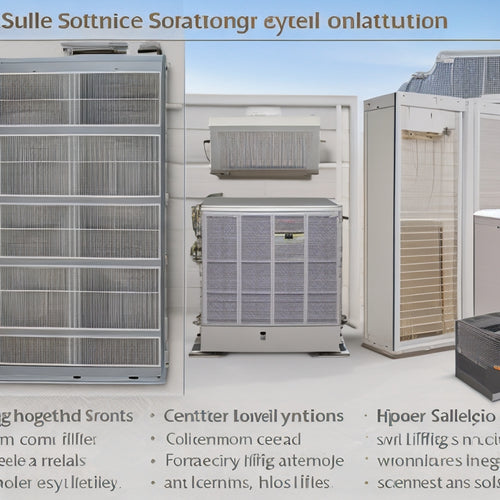
Green Car Revolution Unveiled: Latest Insights
Share
The automotive industry is on the cusp of a revolution, driven by environmental concerns, technological advancements, and shifting consumer preferences. Electric vehicles are leading the charge, with manufacturers like Nissan and Tesla setting durability and reliability standards. As the industry shifts towards electrification, investments in charging infrastructure and sustainable energy sources like solar and wind power are becoming essential. With nearly 70% of the world's population expected to live in urban areas by 2050, the future of green transportation hinges on renewable energy adoption and reduced emissions. The path forward will be shaped by innovation, infrastructure development, and a commitment to a low-carbon economy – explore the complexities and opportunities ahead.
Key Takeaways
• Electric vehicles are driving the shift towards sustainable transportation, with manufacturers electrifying fleets to stay competitive.
• Investments in charging infrastructure are essential for seamless energy distribution and a low-carbon economy.
• Renewable energy sources, like solar and wind power, are becoming cost-competitive with fossil fuels, paving the way for a green transportation future.
• The industry is committed to electrification, with nearly 70% of the world's population expected to live in urban areas by 2050, driving the need for green transportation evolution.
• Autonomous electric trucks and solar-assisted electric motorhomes are revolutionizing transportation, promising a cleaner, healthier, and more sustainable sector.
Electric Vehicle Advancements
As the electric vehicle (EV) market continues to accelerate, innovative models like the 2018 Nissan Leaf and Tesla Model S are setting new standards for durability and reliability, while newcomers like Mercedes-Benz are making bold shifts to electric powertrains.
This surge in EV adoption is driving the need for smart grids and advanced charging infrastructure. To support this growth, investments in charging infrastructure are essential, enabling seamless and efficient energy distribution.
The integration of EVs with smart grids will optimize energy management, reducing strain on the electrical grid and promoting a sustainable energy ecosystem.
As the EV market continues to evolve, advancements in charging infrastructure will play a critical role in shaping the future of electric mobility.
Sustainable Energy Outlook
Embracing a sustainable energy outlook, the world is witnessing a significant shift towards alternative fuels, with biofuels, hydrogen, and other innovative solutions gaining traction as viable alternatives to traditional fossil fuels.
As the demand for renewable energy sources continues to rise, the focus is shifting towards developing sustainable energy infrastructure. This change is driven by the need to reduce greenhouse gas emissions and mitigate climate change.
Renewable energy sources, such as solar and wind power, are becoming increasingly cost-competitive with fossil fuels, making them an attractive option for powering our transportation systems.
As the world moves towards a low-carbon economy, a sustainable energy outlook will play an important role in shaping the future of transportation.
Industry Shift Towards Electrification
The rapid proliferation of electric vehicles on roads worldwide has triggered a seismic shift in the automotive industry, with manufacturers scrambling to electrify their fleets and remain competitive in a market increasingly driven by environmental concerns and government regulations.
As the industry shifts towards electrification, charging infrastructure development becomes a critical component. Governments and companies are investing heavily in enhancing charging infrastructure to support the growing demand for EVs.
However, regulatory challenges persist, with varying standards and policies across regions hindering the rollout of a seamless charging network. Despite these hurdles, the industry remains committed to electrification, driven by the need to reduce emissions and meet stringent environmental targets.
Future of Green Transportation
Nearly 70% of the world's population is expected to reside in urban areas by 2050, putting unprecedented pressure on transportation systems to evolve and become more sustainable.
As the world shifts towards a low-carbon economy, the future of green transportation lies in the adoption of renewable energy sources and reduction of environmental impact.
Electric vehicles, fueled by renewable energy, will play a pivotal role in reducing greenhouse gas emissions and improving air quality.
Additionally, innovative solutions such as autonomous electric trucks and solar-assisted electric motorhomes will revolutionize the transportation sector.
As governments and companies invest in sustainable infrastructure, the future of green transportation looks promising, paving the way for a cleaner, healthier, and more sustainable tomorrow.
Frequently Asked Questions
How Can I Find a Reliable Public Charging Station Near Me?
As you navigate the electric highway, finding a reliable public charging station near you is essential. Check online platforms, such as Charger Reviews, and prioritize Station Safety to guarantee a seamless and secure charging experience.
Are There Any Electric Vehicle Models Suitable for Long Road Trips?
When planning a long road trip in an electric vehicle, range anxiety can be alleviated by choosing models with high ranges, such as Tesla's Model S or X, and utilizing road trip planning tools to locate convenient charging stations.
Can I Install a Home Charging Station With a Standard Outlet?
"Just as Alexander Graham Bell's humble beginnings sparked a communication revolution, a single home charging station can ignite a personal electric vehicle revolution. To install, consult an electrician to assess your home wiring, ensuring a safe and efficient charging experience."
Do Electric Vehicles Produce Any Tailpipe Emissions at All?
Electric vehicles produce zero tailpipe emissions, eliminating harmful pollutants and greenhouse gases, as they run solely on electricity, making them an environmentally friendly alternative to traditional internal combustion engine vehicles.
Are There Any Federal Incentives for Buying a Hybrid Vehicle?
As the automotive landscape shifts towards a greener horizon, federal incentives for hybrid vehicles come into focus. Yes, tax credit extensions and adherence to fuel efficiency standards provide attractive benefits for eco-conscious consumers, driving the industry towards a sustainable future.
Related Posts
-

Why Solar HVAC Filters Revolutionize Home Energy Efficiency
By adopting solar HVAC filters, you're shifting your home's energy reliance from fossil fuels to clean, renewable sou...
-

Green Deck Options: Earth-Conscious Choices for Your Home
You're looking for a deck that not only enhances your home's exterior but also aligns with your eco-friendly values. ...
-

7 Smart Air Purification Hacks for Energy-Savvy Homes
You can notably improve your indoor air quality while minimizing energy consumption by implementing strategic air pur...


